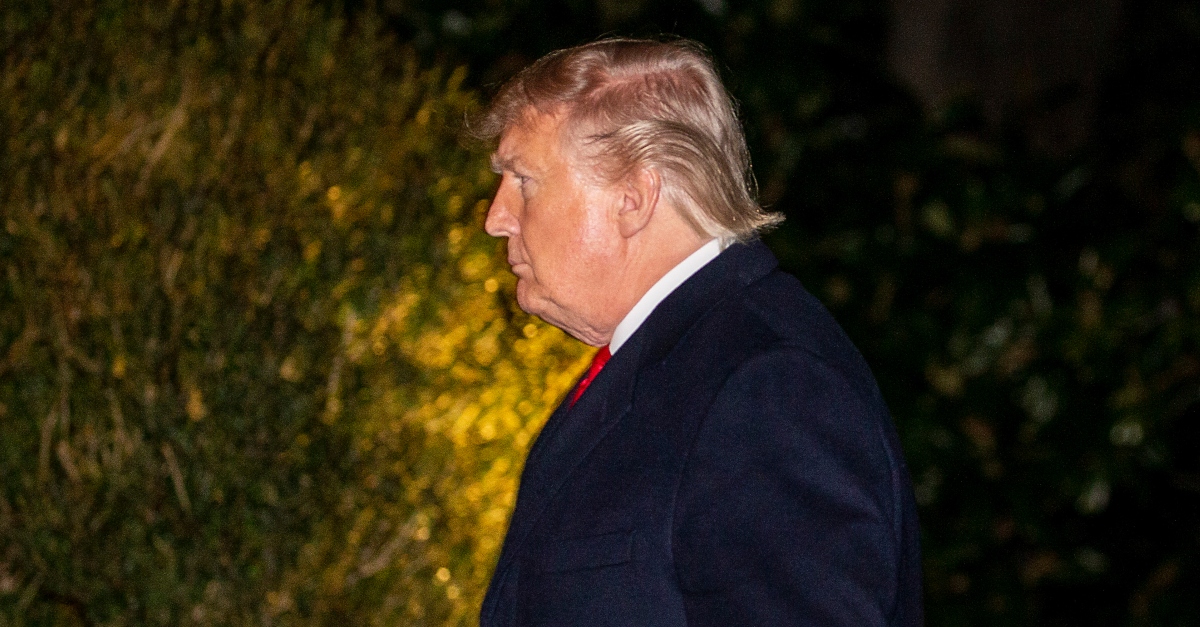
Critics of President Donald Trump have found their latest windmill at which to tilt. Last Friday, the president reassigned Lt. Col. Alexander Vindman—and his twin brother—and recalled now-former ambassador to the European Union (EU) Gordon Sondland.
Members of the liberal intelligentsia quickly reached for the fast-fading-in-relevance comparison of the Watergate scandal’s “Saturday Night Massacre” and cleverly switched out the day of the week in order to accommodate for the current turn of events.
Subsequently, Trump’s avowed chastisers in the media reached for an even more inapposite criminal statute in hopes of tarring the decidedly criminal Trump presidency with a bit more law-breaking-esque behavior. A typical Who’s Who of prominent anti-Trump commentators unfortunately spread this categorical misinformation.
Former White House ethics attorney Walter Shaub even brought Talking Heads into the controversy by riffing on their lyrics:
University of Alabama Law Professor Joyce White Vance—not surprisingly a former prosecutor—also fanned the flames by declaring the personnel actions “retaliation.”
CNN legal analyst Elie Honig—himself a doubly former prosecutor—also issued a declaratory judgment as to the alleged illegal and undeniably untoward nature of Trump’s latest outrage-seeking Apprentice-like actions:
New York University Law Professor Ryan Goodman cited the frustrated exit plans of Vindman and Sondland as additional “evidence” that those personnel changes qualified as “pure retaliation” which was “designed to send a message.”
Consider this constructive criticism, folks: you really don’t have to do this. And, to admittedly beg the question: haven’t you learned a thing?
Here’s what the statute people are citing [18 U.S. Code § 1513(e)] actually says:
Whoever knowingly, with the intent to retaliate, takes any action harmful to any person, including interference with the lawful employment or livelihood of any person, for providing to a law enforcement officer any truthful information relating to the commission or possible commission of any Federal offense, shall be fined under this title or imprisoned not more than 10 years, or both.
As Law&Crime Matt Naham previously noted, the law above looks awfully close to describing the circumstances under which the brothers Vindman and ambassadorship-purchasing Sondland secured the swift boot.
“Congress is not [a law enforcement officer], but even if you really wanted to make the case that the president engaged in criminal witness retaliation, we would refer you to the DOJ’s ‘can’t indict a sitting president’ policy,” he noted. “The only remedy is impeachment and we just saw how that went.”
But close doesn’t count here—it never does and it never should in matters of law. The criminal code, in particular, demands precision. And more to the point, the criminal code demands that our legal custodians—like law professors and prosecutors—understand, accept, internalize and act on such precision.
Attorney, CNN legal analyst, impeachment expert and Tulane Law Professor Ross Garber told Law&Crime why the statute being breathlessly cited in the media is not applicable here:
[Section] 1513(e) applies to those who provide information to law enforcement agencies about crimes. It doesn’t apply to providing information to a whistleblower or in Congressional oversight or even impeachment inquiries. And it doesn’t apply to allegations of non-criminal conduct. In any event, it’s likely the president could make a compelling argument that he had legitimate (non-relaliatory) purposes for the actions taken with respect to the Vindmans and Sondland. They each occupied positions that require the president’s trust and confidence and serve at his pleasure. Moreover, I’m sure the decisions were vetted by the White House Counsel’s Office, setting up an advice of counsel defense.
Again, consider this a constructive criticism. The Trump administration has arguably committed several documented federal crimes as well as violations of the U.S. Constitution and international law—most presidencies achieve such feats of illegality and bad behavior.
But the constant recourse to ginned-up outrage and inapposite citation to criminal statutes doesn’t reflect a respect for the law—in fact, it suggests exactly the opposite—and it doesn’t help people pointing out genuine crimes committed by Trump make their case.
[image Donald Trump via Tasos Katopodis_Getty Images]